Characters
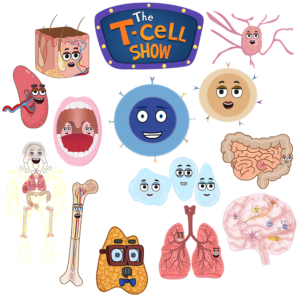
Do you want to learn more about each one of the organs that make the immune system work?
The T cell

The host of the show is a very important cell in our immune system. In our blood we have red blood cells that take oxygen around your body and white cells; these white cells are different types of cells including B and T cells. The T cells have three main functions: help other cells from the immune system to accomplish their mission, kill specific targets and keep other immune cells under control. The T cells develop in the bone marrow and mature in the thymus (that is why they are called T cells) specializing in their main function.
The B cell

Our special reporter develops and matures in the bone marrow and has the very important mission of producing antibodies; antibodies are proteins with a “y” shape that allows to identify and counteract threats. These threats are made of antigens, which are the molecules recognized by the antibodies and receptors of the immune cells. The B cell is also able to present this antigens to T cells and it is a professional doing that.
The immune system
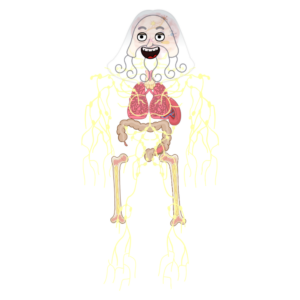
The idea of the immune system as a character was one of the most difficult to do because it is an abstract character, there was nothing we could use to accommodate its complex image. It is essentially a network organized at different levels; proteins, cells and organs, that respond to threats to keep us alive. The immune system emerges from the interaction of all his components and the fine regulation among them. It is an intricate system that tries to do everything right 24/7, forever.
The Thymus
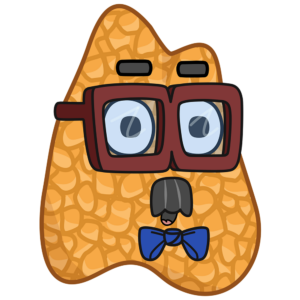
This fascinating organ remained a mystery and was considered redundant for a long time. It wasn't until 1961 that we started to understand it’s fantastic function in providing training for T cells so that they are able to perform their work in the best possible way. Once the T cells are ready, they can go to circulate the body. Undoubtedly, the Thymus is a beautiful organ full of secrets that we are still investigating.
The bone
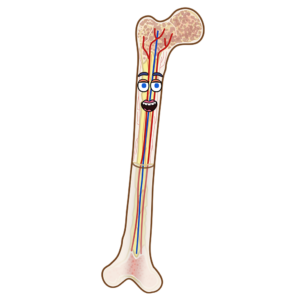
Within the bone is the bone marrow and it is a remarkable organ where all the blood and immune cells are produced. This process, called haematopoiesis, was discovered in the 19th century. We now know that B cells, crucial for immune responses, mature in the bone marrow. Throughout life, the bone marrow continues to produce blood cells, mature B cells and maintain immune function.
The Gut
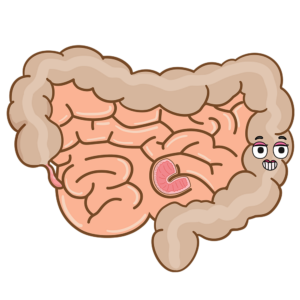
One of the hottest topics now is the gut and its microbiome (all microbes including; viruses, bacteria and fungi) and how it is involved in the immune system's responses to other menaces. This is changing how we think about this organ. So many interesting facts are emerging about the gut and the immune system, like how some immune cells get trained and develop in the gut, how they keep that amazing ecosystem in balance, and how imbalances can influence our health. New approaches show remarkable benefits in manipulating the microbiome with our diet to keep everything in that perfect and fragile equilibrium.
The Tonsils
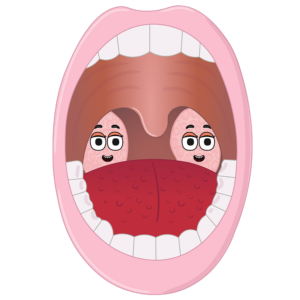
Often underappreciated, the tonsils are a wonderful place to first encounter antigens and initiate an immune response. There are seven tonsils in total in our head, with the most famous being the palatine tonsils on each side of the start of the throat. They try to catch any dangerous element that deserves attention, initiating the immune response.
The Microglia
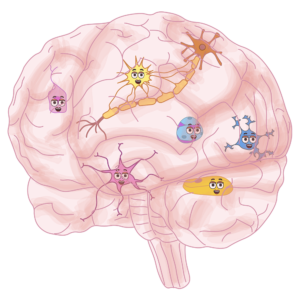
A hot topic today is the research of the microglia, which is helping us understand its role in the normal and ill brain and the many important functions it does to keep the brain healthy. The idea of the brain as an immune-privileged site has been challenged, and now we know there are several immune cells that are residents of the brain.
The Skin
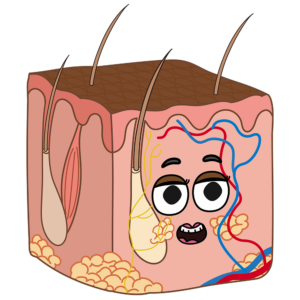
The skin is our biggest organ and our main point of contact with the external world. It is home to several type of immune cells, and there are loads of immune responses happening there all the time. All these activities are key to our survival and make the skin a very dynamic tissue.
The Lungs
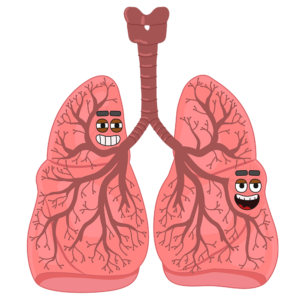
As they mentioned, "the air we breathe is full of dangerous things." That is why the lungs are also important for immune system operations. Their main function is to get oxygen to send to all cells. However, to do that, they must deal with external particles that could be very dangerous, and here, all the resident immune cells help with that.
The Lymph Node
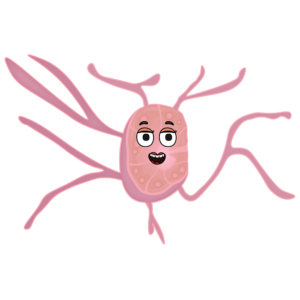
We have many lymph nodes around the body, no one knows quite how many, but it is estimated we have around 450 distributed throughout the body. The lymph nodes oversee filtering compounds from the surrounding tissues, working in a circulatory matter. In these special places, the B and T cells are introduced for the first time to their specific antigen, the one that they can recognize. Here, they get ready to continue the adaptive immune response.
The Spleen
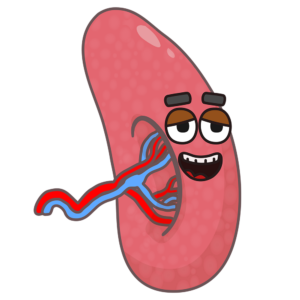
The spleen has two special areas: the red pulp, where the circulatory system functions, clearing red blood and recycling iron, and the white pulp, which is the most important place for the immune system. It provides secure zones for B and T cells to present antigens.
Mucus, Saliva and Tears
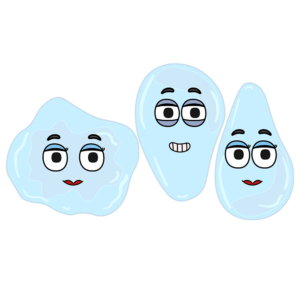
These body fluids contain antibacterial enzymes and can trap and sometimes even destroy potential dangers. They also have other roles in the everyday work of the body and help to keep you healthy.
The Marrow Five
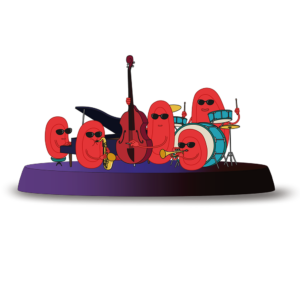
Our vibrant jazz quintet, a powerhouse of oxygenated energy, has been a constant source of inspiration. Their hard work and dedication paid off at the T cell show, where they absolutely blew us away.
